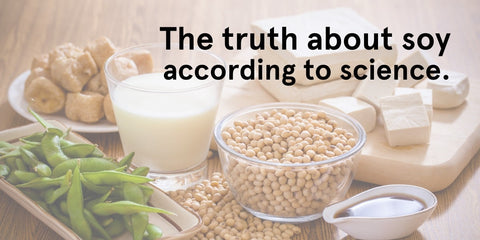By Keri Gan, MS, RDN, CDN
As a registered dietitian who frequently partners with food brands, I’ve noticed that a lot of the important behind-the-scenes work that these companies engage in doesn’t ever make it to their consumers. And when I use the word consumer here, I am using it as an all-encompassing term that includes other registered dietitians, healthcare professionals, and even my friends and family. I mention this because I think sometimes when we don’t know the “why” behind a brand’s decision we are quick to judge, but when we know the true mission behind the company, we probably would feel differently.
Let me tell you a story.
Years ago, I was interviewed about Soylent, a company at the time that I believe was trying to revolutionize the way we eat with its Ready-To-Drink Meal Replacement. It was all the rage at the time in Silicon Valley. Needless to say, as a RD I was like – “UM, we don’t need to drink our meals at our desk but instead take the time to prepare a meal!”
Fast forward to six months ago when I became a spokesperson for Soylent. What? That’s right, I changed my tune. I changed my tune because I learned all about the mission of the company and the work they were doing within the scientific community. They have the mission of making complete, sustainable nutrition accessible, appealing and affordable to all. Also, I learned that their goal is NOT to replace all food but rather have complete nutrition easily and affordably available to help people across the country fill “food voids” (those times throughout the day when we all skip meals or make poor food choices due to either lack of time or other resources). However, even though they don’t want to replace all meals they do have some consumers who consume their products for multiple meals a day so they wanted to make sure that it was not only safe, but healthy.
To that end, I wanted to share with you some of the research that the company has conducted or participated in, because they don’t just talk the talk - they also walk the walk to make sure their products have the health benefits they tout.
As of today, Soylent has been involved in three published scientific studies. I wanted to make sure that everyone saw these, because it is pretty impressive that the company cared enough to do this and equally as impressive are the results. Below are my take-a-ways :
- Overview:
- Soylent doesn’t recommend that consumers replace all their meals with the product, but if they do this study found it to be safe.
- Soylent commissioned a randomized, placebo controlled pilot study and found that subjects who exclusively consumed Soylent for 30 days had healthy nutritional status at the end of the study.
- Overview:
- A Soylent diet has the potential to influence the consumer’s microbiome.
- A group of researchers at the University of California, Berkeley completed a small study in 2017 that showed that among the Soylent dieters, there was a significant increase in the ratio of Bacteroidetes to Firmicutes abundance, which is associated with several positive health outcomes, including reduced risks of obesity and intestinal inflammation.
- Overview:
- Soylent could be an effective way to prevent cancer patients from losing excessive weight during treatment.
- UCLA (Department of Radiation Oncology, University of California, Los Angeles, Los Angeles, CA) has participated in a 2+ year long study that demonstrates that Soylent could be an effective weight management intervention for patients with head and neck cancer.
The bottom line here is that while consumers often feel that all brands care about is selling its product, the reality is that is not always the case. As my example shows, a company such as Soylent, a leader in the meal replacement category and food technology, cares about its community and the health implications of its products. By being a part of science-based research, their ultimate goal is to keep their consumers safe, healthy, and educated. This is why I am proud to partner with Soylent.
_______________________________________

By : Keri Gan, MS, RDN, CDN






